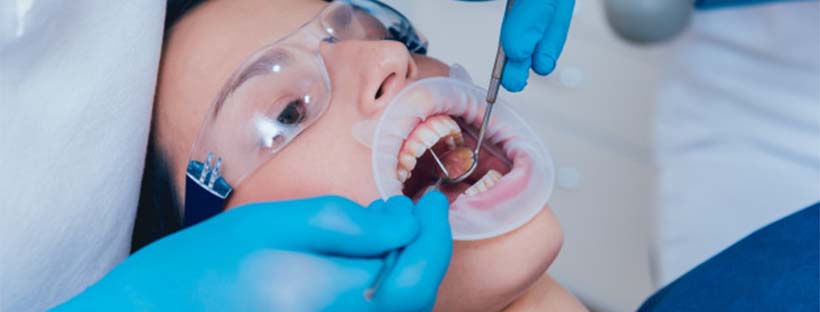Oral Care in Pregnancy and Root Canal Treatment (RCT) in Pregnancy
 40728
40728

So we all know that eating behavior can change during Pregnancy. A lot of women tend to get a craving for sweet food and late-night snacking. Often, after these binges, oral care takes the back seat, which leads to cavities. If undetected, these cavities can progress rapidly, causing the infection to spread to the pulp tissue and bone, requiring a root canal treatment in pregnancy.
1. What is root canal treatment?
Root canal treatment comprises debridement and cleaning of all the infected tissue from the tooth, root canal chamber, and periapical area. Once clean, the section is then filled with the filling material (eg. guttapercha) and sealed. Root canal treatment is done to save the tooth from extraction.
2. What is the safest time to get a root canal treatment done during pregnancy?
The second trimester is the safest period to get a root canal treatment. However, in some emergency cases, it may have to be performed in the first or third trimester as well. Tip: if it’s a planned pregnancy, get yourself examined by a dentist to avoid surprises later on and detects those cavities early on.
3. Is extraction better than root canal treatment?
It’s a myth that doing a root canal treatment is bad for your health. RCT helps your tooth to last longer in your mouth and to chew better. In some instances, where the damage is beyond repair, an extraction might be indicated. Whenever given an option, always choose root canal treatment over-extraction.
Also Read: Everything you need to Know about Pregnancy
4. How many sittings are required for RCT?
With all the recent advances, in most cases, a single sitting is all that you will need. However, in some cases, if the infection cannot be controlled or the patient is tired; more appointments may be necessary.
5. Is RCT painful?
Root canal treatment is done under local anesthesia. So, during the procedure, it is unlikely that you will experience any pain. After the root canal treatment, pain can be easily managed with medication. Antibiotics are not routinely prescribed for RCT, and however, based on your medical history, they may be required.
6. Is a Crown mandatory after RCT?
Depending on the extent of damage caused by the cavity to the tooth structure, you may require a simple filling, an inlay, or a crown. Your dentist will make this decision upon examination. So, a height is not required in all cases, and you can discuss with your dentist and choose a less invasive procedure like an only over a crown when presented with an option.
I hope this answers most of the questions revolving around root canal treatment in pregnancy. Kindly put in a comment if this was useful and if you have any further questions.
Article Credit:
Dr. Kanupriya Kajaria, Prosthodontist, Dentist in Sawasdee Dental Clinic, Alipore , Kolkata
For more information on Oral Health visit:
Instagram: @drkanupriya85 , Website: www.drkanupriya.in
Follow us-
Instagram/ Facebook/ Youtube/ Pinterest
Also Read:
Falling of Your Little One’s First Set of Teeth – A Guide to your child’s dental health
How to take care of Covid-19 at home? Home care Guidelines, Treatment, Symptoms and Precautions
Those Pregnancy Craving: The Baby wants what the baby wants!





Leave a Reply